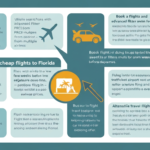Are you dreaming of working in Europe https://finanzasdomesticas.com/trabajos-en-europa (Jobs in Europe) might sound like a big adventure, but it’s easier than you think! Many people want to find trabajos-en-europa because Europe has lots of opportunities in different fields. Whether you are looking for a job in technology, healthcare, or hospitality, there’s something for everyone.
Finding trabajos-en-europa is exciting, but you need to know where to start. First, you need to research which countries offer jobs that match your skills. Some countries may require special permits or visas, so it’s important to be prepared. This blog will guide you step-by-step on how to find the perfect job in Europe.
Why Trabajos-en-Europa is a Great Opportunity for Everyone
Trabajos-en-Europa is a chance for people to explore new countries and cultures. Working in Europe gives you the opportunity to learn new things, meet different people, and grow as a person. Each country in Europe has something unique to offer, from beautiful landscapes to rich histories.
In addition, jobs in Europe often come with good pay and benefits. Many European countries provide excellent healthcare and education, making life easier for workers. This means when you find trabajos-en-europa, you’re also getting a chance to improve your quality of life.
Moreover, having work experience in Europe can make your resume look impressive. Employers value international experience, and working in Europe shows that you are adaptable and open to new challenges. It’s a great way to boost your career while experiencing something new.
Top Countries to Consider for Trabajos-en-Europa
When looking for trabajos-en-europa, it’s important to consider which countries suit your skills and needs. Germany is a top choice because it has a strong economy and lots of job opportunities, especially in engineering and technology. Many international companies have their headquarters in Germany, making it a great place to start your career.
France is another popular destination for trabajos-en-europa. Known for its rich culture and history, France offers jobs in tourism, fashion, and art. English speakers are in demand, especially in larger cities like Paris. Plus, learning French can be a valuable skill for your future.
Spain is ideal if you prefer a warmer climate and a relaxed lifestyle. The country has opportunities in hospitality, teaching, and healthcare. Spain also has a high demand for English teachers, making it a good option if you’re interested in education. Each country in Europe has its own appeal, so choose the one that best matches your career goals.
How to Apply for Trabajos-en-Europa from Your Home Country
Applying for trabajos-en-europa from your home country might seem difficult, but it’s possible with the right approach. Start by researching companies that hire international workers. Many global companies have offices in Europe and are open to hiring people from other countries.
Next, prepare your resume and cover letter to match European standards. Employers in Europe often expect a more detailed resume, including your education, work experience, and skills. Be sure to highlight any international experience you already have, as this can make you stand out.
Once your resume is ready, start applying online. Websites like LinkedIn, Indeed, and Glassdoor are great places to search for trabajos-en-europa. You can also check the websites of European companies directly. Applying online is convenient, and many companies conduct interviews over video calls, making it easier for you to get started.
Important Documents You Need for Trabajos-en-Europa
To get trabajos-en-europa, you will need certain documents to work legally. A valid passport is the first thing you need. Make sure it’s up to date and will not expire soon. Some countries require a visa or work permit, so check the requirements for the country where you want to work.
A work visa is usually needed before you can start trabajos-en-europa. The process for getting a visa varies by country, but you’ll likely need a job offer first. Once you have a job offer, your employer can help you with the visa process, but it’s a good idea to start gathering documents early.
In some cases, you might also need to prove your qualifications. For example, if you’re applying for a job in healthcare or engineering, you might need to show your degrees or certifications. Having all your documents ready will make the process of finding trabajos-en-europa much smoother.
Best Websites to Search for Trabajos-en-Europa
Finding trabajos-en-europa has become easier with the help of online job portals. LinkedIn is one of the best websites to search for jobs in Europe. It allows you to connect with employers directly and view job listings from various companies. You can also join groups related to your industry to stay updated on new opportunities.
Another useful website is Indeed. This platform aggregates job postings from different sources, making it easy to find trabajos-en-europa in one place. You can filter your search by location, job type, and salary, helping you find the perfect match for your skills.
Glassdoor is also a great resource. Not only does it list job openings, but it also provides company reviews, salary information, and interview tips. This can be helpful when preparing your application and deciding which jobs to apply for. Using these websites can significantly increase your chances of finding trabajos-en-europa.
How to Prepare Your Resume for Trabajos-en-Europa
Preparing your resume for trabajos-en-europa requires some careful thought. European employers often look for specific information, so it’s important to tailor your resume to meet their expectations. Start by including a professional summary at the top, highlighting your skills and experience relevant to the job.
Make sure to list your work experience in reverse chronological order, starting with your most recent job. Include details about your responsibilities and achievements in each role. If you have any international experience, be sure to highlight it, as this can make you more attractive to employers looking for someone with a global perspective.
Don’t forget to include your education and any relevant certifications. In Europe, it’s common to include your language skills as well, so mention any languages you speak and your level of proficiency. By carefully preparing your resume, you can increase your chances of landing trabajos-en-europa.
Understanding the Work Culture in Different European Countries
Understanding the work culture is essential when seeking trabajos-en-europa. Each European country has its own work environment and expectations, so it’s important to know what to expect. In Germany, for example, punctuality and efficiency are highly valued. Germans are known for being very organized and direct in their communication.
In contrast, work culture in Spain is more relaxed. Spaniards often take long lunch breaks, and the workday may end later in the evening. Relationships are important in Spanish business culture, so taking the time to build connections with your colleagues is essential.
France has its own unique work culture as well. The French value professionalism, but they also appreciate a good work-life balance. It’s common to have long vacations, and the workweek is often shorter than in other countries. By understanding these cultural differences, you can better adapt to your new job and succeed in trabajos-en-europa.
How to Ace Your Interview for Trabajos-en-Europa
Acing your interview for trabajos-en-europa is key to getting the job. Preparation is important, so start by researching the company and the role you are applying for. Knowing the company’s values and goals can help you tailor your answers to fit what they are looking for.
Practice common interview questions ahead of time. Be ready to talk about your experience, skills, and why you want to work in Europe. Make sure to emphasize any international experience you have, as this can set you apart from other candidates. Confidence and clear communication are important during the interview.
On the day of the interview, dress professionally and arrive on time. If the interview is online, make sure your internet connection is stable and your background is tidy. Being well-prepared and confident will help you make a great impression and increase your chances of landing trabajos-en-europa.

Tips for Moving and Settling Down After Getting Trabajos-en-Europa
Moving to a new country for trabajos-en-europa can be both exciting and challenging. To make the transition smoother, start by planning your move carefully. Make a checklist of things you need to do, such as finding a place to live, opening a bank account, and setting up utilities. This will help you stay organized and reduce stress.
Once you arrive, take some time to explore your new surroundings. Getting to know the local area will help you feel more at home. Try to learn some basic phrases in the local language, as this can make everyday tasks like shopping or asking for directions easier.
Building a social network is also important. Join local clubs, attend events, or connect with other expats to make new friends. Having a support system can make your experience more enjoyable and help you adjust to life in Europe. By following these tips, you can settle down quickly and start enjoying your new life with trabajos-en-europa.
What to Expect in Your First Month of Trabajos-en-Europa
Your first month of trabajos-en-europa will be full of new experiences. You’ll be adjusting to a new job, meeting new people, and getting used to a different culture. It’s normal to feel a little overwhelmed at first, but with time, you’ll start to feel more comfortable.
During this time, it’s important to focus on learning as much as you can. Pay attention to how things are done in your workplace and ask questions if you’re unsure about anything. This will help you adapt quickly and show your employer that you are eager to learn.
Outside of work, take some time to explore your new city or town. Visit local attractions, try new foods, and immerse yourself in the culture. This will help you feel more connected to your new environment and make the transition smoother. By the end of your first month, you’ll likely start to feel more settled and confident in your new role.
Challenges You May Face in Trabajos-en-Europa and How to Overcome Them
Working in Europe, or “trabajos-en-europa,” can be an exciting adventure, but it’s not without its challenges. One of the first obstacles you might encounter is the language barrier. While many Europeans speak English, it’s not always the case in every country or region. To overcome this, try learning some basic phrases in the local language. Even a little effort can go a long way in helping you communicate and integrate into your new environment.
Another challenge could be adjusting to the different work culture. As mentioned earlier, each European country has its own way of doing things. If you’re used to a more relaxed work environment, adapting to a highly structured or punctual culture might be difficult at first. However, by observing and asking questions, you can gradually learn the ropes and fit in more comfortably.
Finally, being away from family and friends can lead to feelings of loneliness. This is a common issue for people working abroad. To combat this, try to stay connected with loved ones through regular calls or messages. Additionally, making new friends and building a social network in your new country can help you feel more at home. Over time, you’ll likely find that these challenges become easier to manage as you settle into your new life in Europe.
Benefits of Networking While Working in Trabajos-en-Europa
Networking is a powerful tool that can greatly benefit your career when you’re involved in trabajos-en-europa. By building connections with colleagues, industry professionals, and even locals, you can open up new opportunities and gain valuable insights into your field. Networking can help you learn about job openings, gain advice on career development, and even find a mentor who can guide you through the European job market.
In addition to professional benefits, networking also helps you integrate better into your new environment. Meeting people from different backgrounds and cultures enriches your experience and provides a support system, making your time in Europe more enjoyable and fulfilling. Whether through work events, industry conferences, or social gatherings, there are many opportunities to expand your network in Europe.
Another advantage of networking in Europe is the chance to practice your language skills and learn about different cultures. Engaging with people from various countries broadens your perspective and makes you more adaptable in the workplace. By prioritizing networking in your trabajos-en-europa experience, you can enhance both your career and personal growth, making the most of your time abroad.
Work-Life Balance Tips for Trabajos-en-Europa
Maintaining a healthy work-life balance is essential for your well-being, especially when you’re taking on trabajos-en-europa. One key tip is to set clear boundaries between your work and personal life. This means not taking work home with you and making sure you have time to relax and enjoy your surroundings after work hours. Many European countries have a strong focus on work-life balance, so it’s important to take advantage of this cultural norm.
Another way to ensure a balanced life is by taking regular breaks and using your vacation time wisely. Europe offers many holidays and vacation days, so plan ahead and make the most of them. Whether it’s exploring a new city, enjoying nature, or simply resting, these breaks will help you recharge and return to work with renewed energy.
Lastly, engage in activities outside of work that you enjoy. This could be anything from joining a local sports team, taking up a new hobby, or spending time with friends and family. Doing things you love helps reduce stress and keeps your life balanced. By following these tips, you can maintain a healthy work-life balance while enjoying your trabajos-en-europa experience.
How to Adapt to Cultural Differences in Trabajos-en-Europa
Adapting to cultural differences is an important part of succeeding in trabajos-en-europa. Each European country has its own customs, traditions, and ways of doing things, so being open-minded and willing to learn is key. One way to adapt is by observing the behaviors and attitudes of your colleagues and locals. Pay attention to how they communicate, dress, and interact with others. This will give you clues on how to fit in and respect local customs.
Another important aspect is understanding the importance of time in different cultures. In countries like Germany and Switzerland, punctuality is highly valued, so always be on time for meetings and appointments. On the other hand, in some Mediterranean countries, people may have a more relaxed approach to time. Understanding these differences can help you avoid misunderstandings and build better relationships.
Building relationships with locals can also help you adapt more quickly. Don’t be afraid to ask questions and seek advice from your colleagues or neighbors. They can offer insights into the local culture and help you navigate any challenges you might face. By being respectful and willing to learn, you can successfully adapt to cultural differences and thrive in your trabajos-en-europa.
How to Make the Most of Your Trabajos-en-Europa Experience
Making the most of your trabajos-en-europa experience means embracing both the challenges and opportunities that come your way. One of the best ways to maximize your time in Europe is by immersing yourself in the local culture. Try new foods, attend cultural events, and explore different cities. Each experience will enrich your life and give you a deeper understanding of the country you’re living in.
Another way to make the most of your experience is by continuing to learn and grow professionally. Take advantage of any training or development opportunities offered by your employer. Networking with other professionals in your field can also lead to new opportunities and help you advance your career.
Finally, don’t forget to enjoy the journey. Working in Europe is a unique opportunity that not everyone gets to experience. Take time to reflect on your accomplishments, the new skills you’ve gained, and the friendships you’ve made. By staying positive and proactive, you can make the most of your trabajos-en-europa and create lasting memories.
Essential Skills to Succeed in Trabajos-en-Europa
Succeeding in trabajos-en-europa requires a set of essential skills that will help you adapt and thrive in a new work environment. One of the most important skills is communication. In Europe, effective communication can make a big difference in how well you perform your job. Whether you are working in a team or dealing with clients, being able to express yourself clearly and listen to others is crucial. Additionally, knowing some basic phrases in the local language can be very helpful, even if your job is primarily in English.
Another key skill is flexibility. European work environments can be quite diverse, with different countries having unique work cultures and practices. Being flexible allows you to adapt to these differences and work effectively with colleagues from various backgrounds. Whether it’s adjusting to new ways of working or being open to different viewpoints, flexibility will help you navigate the challenges of trabajos-en-europa more smoothly.
Time management is also a vital skill for success in Europe. Many European countries place a high value on punctuality and efficiency. Managing your time well ensures that you meet deadlines and complete tasks to the best of your ability. It also helps you maintain a healthy work-life balance, which is highly regarded in many European cultures. By focusing on developing these essential skills, you’ll be better equipped to succeed in your trabajos-en-europa experience.
Finding Affordable Housing for Trabajos-en-Europa
Finding affordable housing is a common concern for those pursuing trabajos-en-europa. The cost of living can vary widely across Europe, so it’s important to research and plan ahead to find a place that fits your budget. One of the first steps is to decide on the type of housing that suits your needs. Some people prefer renting a room in a shared apartment, which can be more affordable and offers the chance to meet new people. Others may opt for a small studio or one-bedroom apartment for more privacy.
Another tip for finding affordable housing is to look for accommodation outside of major city centers. While living in the heart of a city might be convenient, it often comes with higher rent prices. Suburban areas or smaller towns can offer more affordable options while still providing easy access to your workplace through public transportation.
It’s also a good idea to use local resources and websites when searching for housing. In many European countries, there are websites specifically designed for finding rental properties, often in the local language. These platforms can offer better deals than international sites. Additionally, reaching out to locals or joining expat groups can provide valuable recommendations and tips on where to find affordable housing in your new city. By taking the time to research and explore different options, you can find a comfortable and budget-friendly place to live during your trabajos-en-europa experience.
Balancing Family Life with Trabajos-en-Europa
Balancing family life with trabajos-en-europa can be challenging, but with the right approach, it is definitely achievable. One of the key factors in maintaining this balance is effective communication with your family. Keeping everyone informed about your work schedule and any changes that may arise helps to manage expectations and reduce stress. Setting aside regular time for family activities, whether it’s a weekend outing or a simple dinner together, ensures that you stay connected with your loved ones.
Another important aspect is involving your family in your new life in Europe. If they are relocating with you, make sure they feel included in the process. This could mean exploring the new city together, enrolling children in local schools, or participating in community events. The more your family feels integrated into the new environment, the easier it will be to maintain a healthy work-life balance.
For those who are working in Europe while their family remains in another country, staying connected through technology is essential. Regular video calls, messages, and sharing daily experiences can help bridge the distance. Additionally, planning visits home or having family members visit you in Europe can provide much-needed time together. By prioritizing both your work and family, you can successfully balance your responsibilities and enjoy your trabajos-en-europa experience.
Understanding Work Contracts in Trabajos-en-Europa
When starting trabajos-en-europa, understanding your work contract is crucial to ensuring a smooth employment experience. A work contract outlines the terms and conditions of your job, including your duties, working hours, salary, and benefits. It’s important to carefully read and understand every part of the contract before signing. If there’s anything you don’t understand, don’t hesitate to ask for clarification from your employer or seek legal advice.
One key aspect to pay attention to in your work contract is the probation period. In many European countries, it’s common for new employees to have a probationary period, during which either party can terminate the contract with little notice. Understanding the length and terms of this period is important, as it may affect your job security during the initial months.
Another important element is the notice period required if you or your employer decide to end the contract. Notice periods can vary by country and industry, so it’s essential to know how much time you’ll need to give or expect if the employment relationship comes to an end. Additionally, be aware of any clauses related to non-compete agreements or confidentiality, which could impact your future job opportunities. By thoroughly understanding your work contract, you can protect your rights and ensure a successful start to your trabajos-en-europa.
Conclusion
Trabajos-en-europa can be an exciting and rewarding experience if you’re well-prepared. By understanding what to expect, learning about different cultures, and improving your skills, you can make the most of your time working in Europe. Whether you’re looking for job opportunities, housing, or ways to save money, it’s important to plan ahead and stay flexible. This will help you enjoy your work and life in a new country.
In the end, trabajos-en-europa offers not just a job, but a chance to grow and explore. You’ll meet new people, learn new things, and create memories that last a lifetime. Remember to balance work with fun and take care of yourself and your loved ones. With the right approach, your European work adventure can be a truly wonderful journey.




